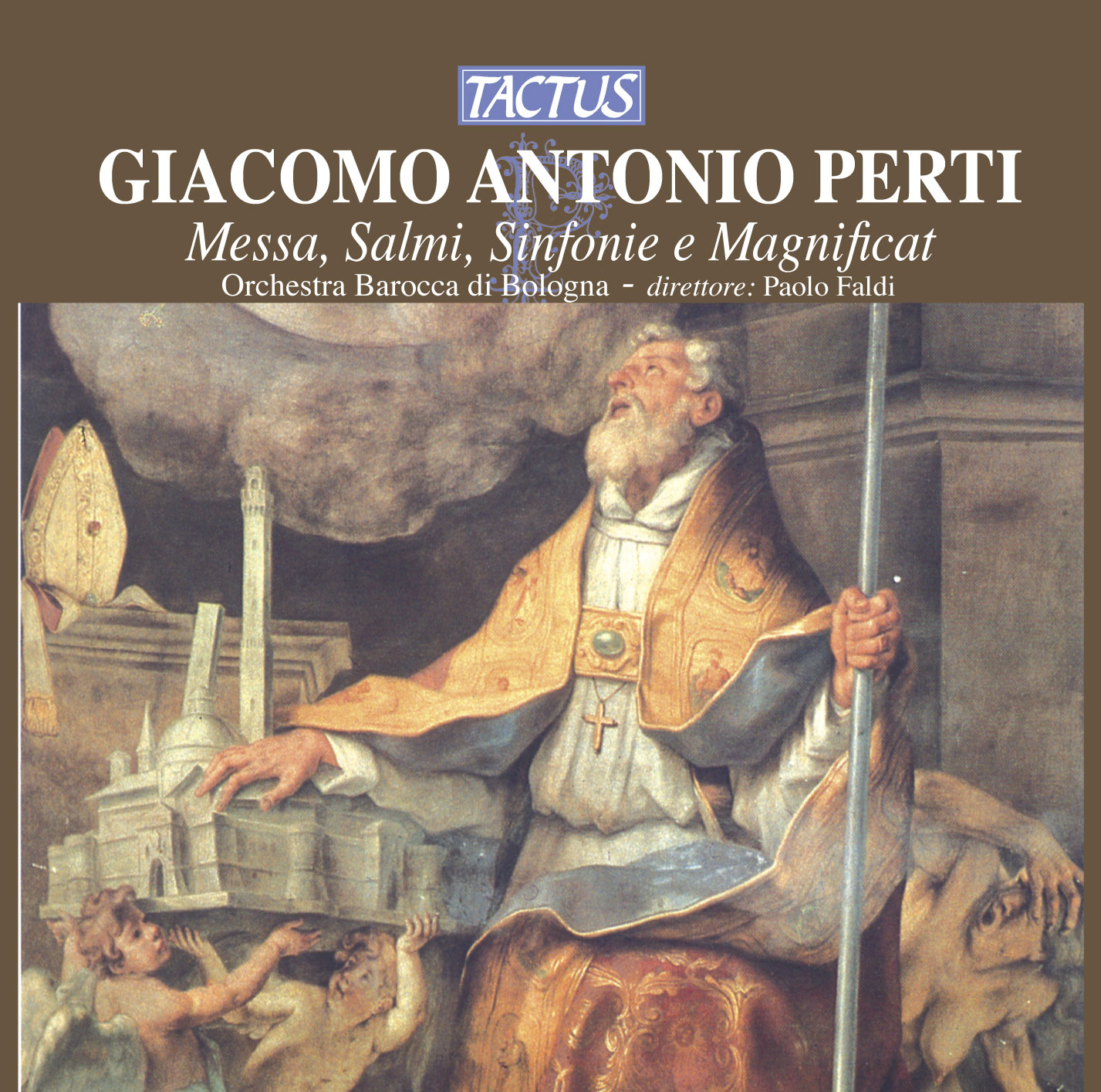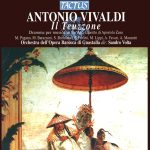PERTI GIACOMO ANTONIO
Born in Bologna in 1661 and died there in 1756, Giacomo Antonio Perti studied at the excellent school and then continued in Parma with Giuseppe Corso, said il Celano although he was belonging to the Roman school.
He soon began to compose for the theatre, becoming also prince of the Accademia Filarmonica, he participated at the dispute between Corelli and Colonna (taking part of the first, the youngest), then became maestro of the cappella of S. Pietro and in 1696, finally, took over the cappella of S. Petronio which he held for 60 years obtaining the appreciation of princes, emperors and popes (the fellow-citizen Benedetto XIV) and enlarged his doctrine to almost all other Bolognese younger composers (going from the violin player Giuseppe Tartini to the cello player Domenico Gabrielli, from the musician Antonio Pistocchi to the omniscient Giambattista Martini).
He composed 24 melodramas (writing some in collaboration and rearranging others), almost entirely lost, 23 oratoria, amongst which we find La passione di Cristo e S. Petronio preconizzato da Dio vescovo di Bologna; around 130 cantates; 28 masses (generally consisting of a Kyrie and aGloria); various sacred music; introductive symphonies to masses and oratoria.
Besides one mass and 8 psalms he also published only one juvenile collection of Cantate morali e spirituali, in which he declares that he was inspired by the “lumi” of Giacomo Carissimi, Luigi Rossi and Antonio Cesti.
During many active and creative years, Perti knew how to conciliate the classical counterpoint of the sixteenth century in the Roman area, the sumptuous concert style of the Bolognese seventeenth century and the clearness, the variety, and the good taste of the first part of the eighteenth century, ready as he was to a rigid polyphonic treatment of the parts, using instruments such as the violin and the trumpet, adopting forms as the amorous or commemorative cantata (but not the sonata and the concert, forms which his contemporaries and his scholars in the meantime began to use).
And gave the best of him self in the sacred repertoire, starting from the mass for three choirs and instruments of 1687 which nevertheless sounds still a bit rigid and schematic.
The motets l’Adoramus te Christe a cappella date from one year before his death, and for respect towards the very old maestro (died the year of Mozart’s birth) remained in the repertoire of the cathedral until 1844; but as worthy are pages as Ad jubila, Cessate, mortis funera e Cantate laeta carmina, for 5 voices and trumpet, oboes and cornets which go from choral parts in major mode and airs in mode minor, which extend into melismas and madrigalisms also concerning the recitatives, which abandon imitations and canons (even false) and the inspiration from the typical Italian, which have plenty of imitations and canons (even false) and at the end they draw inspiration from the typical Italian piety, with a clear and bright character eternally at the service of the liturgy
Tracklist
Perti, Giacomo Antonio
Messa a 5
1 - Sinfonia (1:34)
2 - Kyrie (Chorus) (3:46)
3 - Christe a tre (Soprano, Alto, Bass) (2:26)
4 - Kyrie (Chorus) (1:52)
5 - Gloria (Chorus) (1:08)
6 - Et in terra pax (Chorus) (1:23)
7 - Laudamus te (Soprano) (2:10)
8 - Domine Deus (Alto) (2:00)
9 - Domine filii unigenite (2 Sopranos) (1:41)
10 - Domine Deus Agnus Dei (Bass) (1:57)
11 - Qui tollis - Miserere nobis (Chorus) (4:30)
12 - Quoniam tu solus (Alto, Tenor, Bass) (1:21)
13 - Cum Sancto Spiritu (Chorus) (2:23)
Sinfonia avanti la messa
14 - Sinfonia avanti la messa (2:01)
Laudate Pueri
15 - Laudate Pueri (Soprano, Contralto, Bass) (1:51)
16 - Quis sicut (Contralto) (2:25)
17 - Suscitans a terra (Soprano, Bass) (1:22)
18 - Ut collocet (Soprano, Contralto, Bass) (1:21)
19 - Gloria Patri (Soprano) (2:32)
20 - Sicut erat (Soprano, Contralto, Bass) (1:44)
Sinfonia avanti la messa*
21 - Sinfonia avanti la messa (2:12)
Dixit Dominus a 4
22 - Dixit Dominus a 4 (9:11)
Magnificat a 4
23 - Magnificat a 4 (7:34)
- Composer: PERTI GIACOMO ANTONIO
- Performers: Silvia Vajente, soprano · Pamela Lucciarini, soprano · Orchestra Barocca di Bologna · Coro «Color Temporis» · Paolo Faldi, conductor
- Historical Period: Late Baroque
- Code: TC 661602
- Edition: April 2007
- Barcode: 8007194104042
- Set: 1
- Total tracks: 23
- Total duration: 01:00:22






